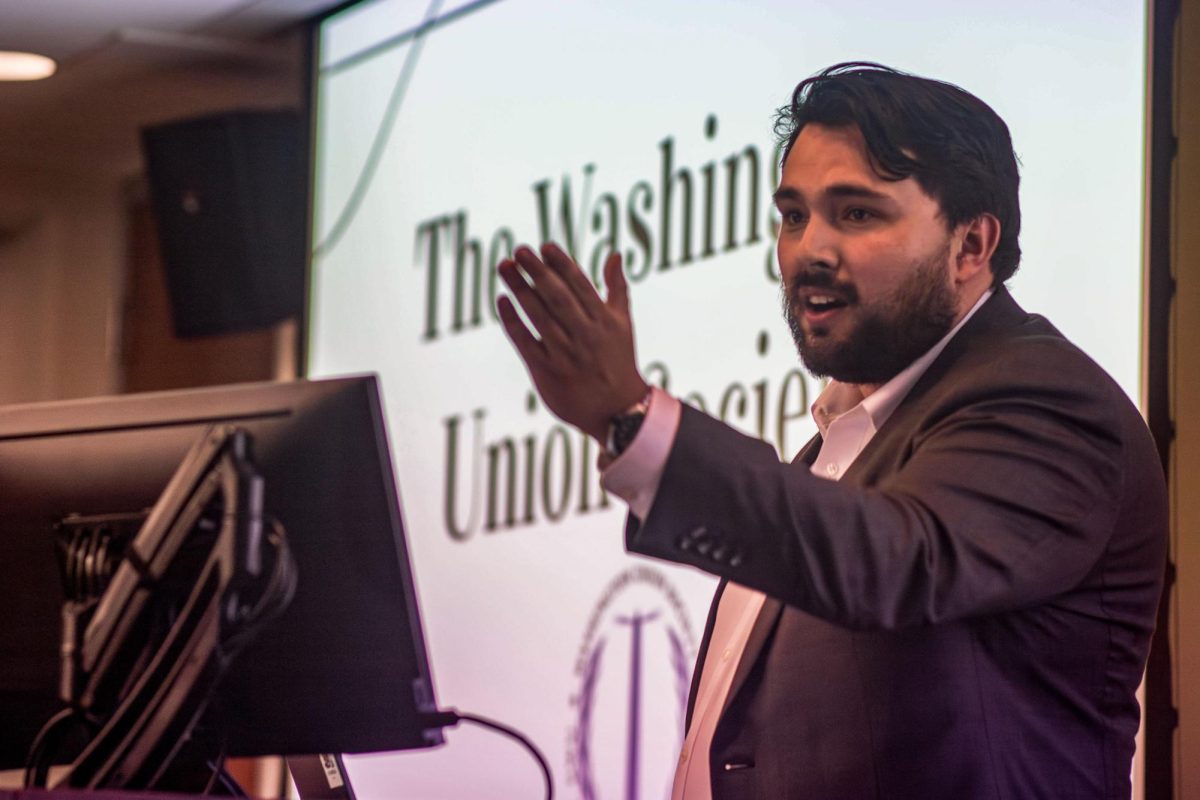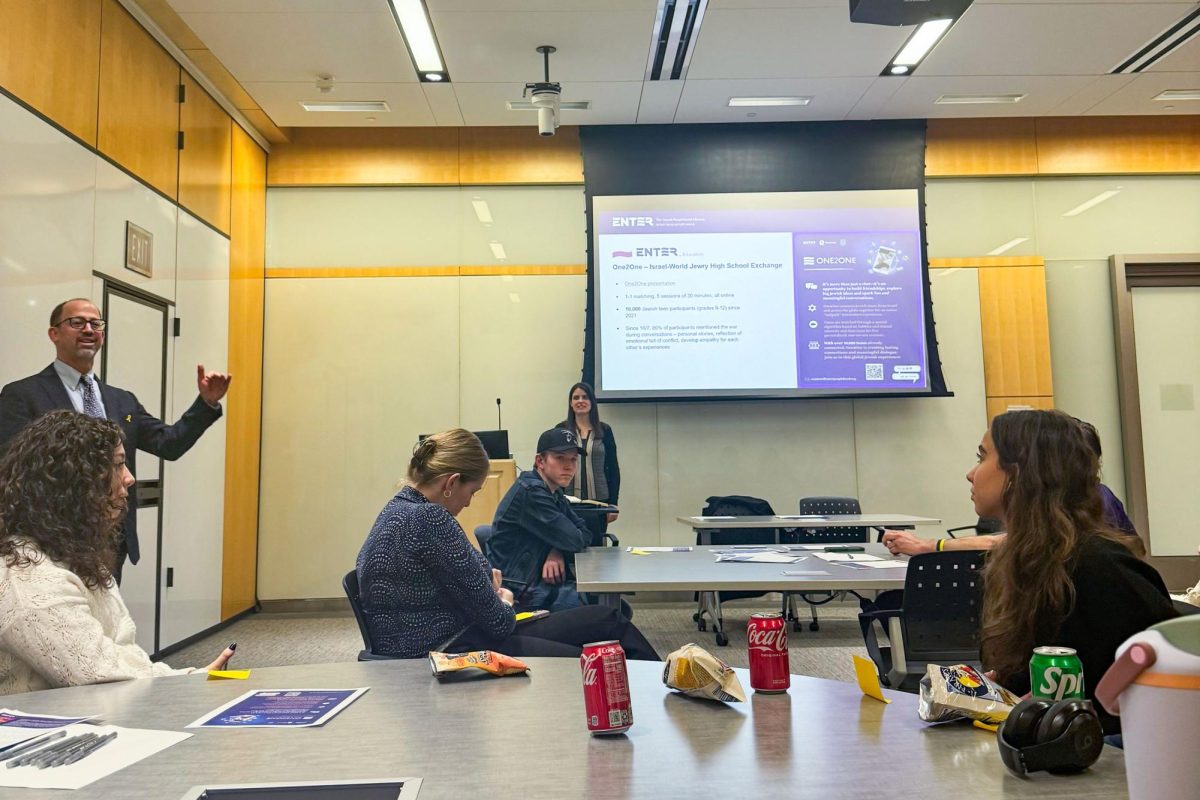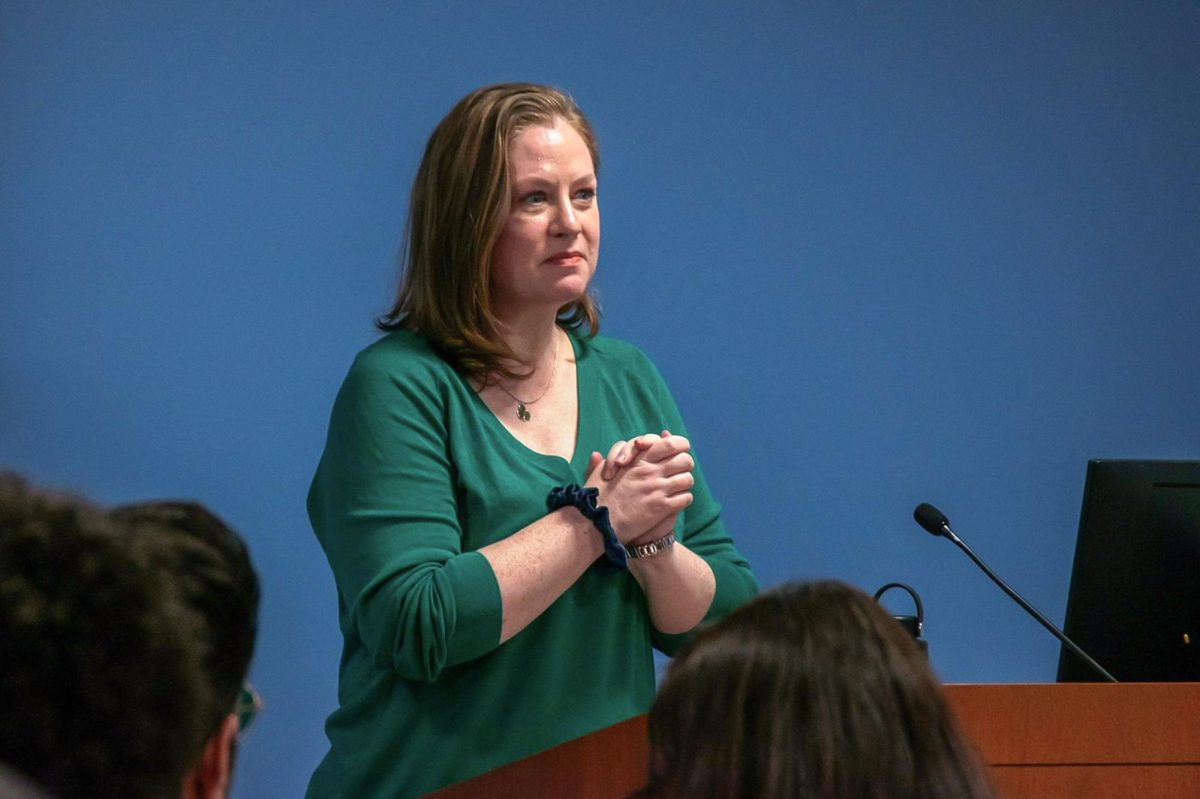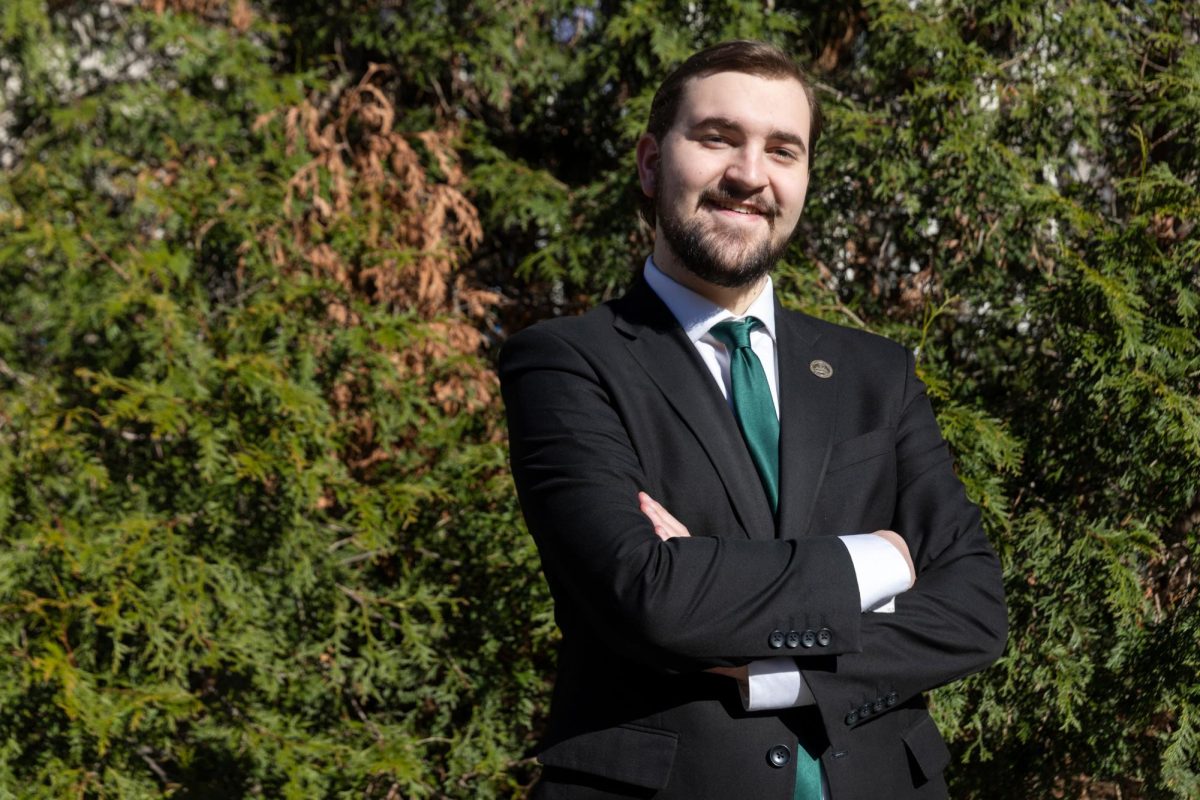Updated: Aug. 30, 2022 at 1:12 p.m.
An author and professor of psychology at Stanford University spoke about the science of racial bias and its consequences at an event at the School of Media and Public Affairs Friday.
Jennifer Eberhardt spoke during a GW Law event Friday in the School of Media and Public Affairs’ Jack Morton auditorium about the research behind her 2019 book, “Biased: Uncovering the Hidden Prejudice That Shapes What We See, Think, and Do.”
“Bias does its work in the shadows and in the open, reworking our brains, framing and distorting our relationships with each other,” Eberhardt said.
Eberhardt spoke about a series of experiments she conducted to reveal racial biases held by people in different areas of the workforce like police officers and teachers. She said an experiment she worked on with teachers showed that when determining punishment for students with repeat offenses, teachers were harsher on students with stereotypically Black names and viewed their behavior as a pattern they should shut down.
Eberhardt also said that Black K-12 students are three times more likely to be suspended or expelled than white students.
“Over time, Black students worry about how they might be treated in school environments and those concerns can affect their day-to-day interactions with teachers,” Eberhardt said. “And when those children grow up and they enter the workplace, their day-to-day interactions are still influenced by race.”
Eberhardt said she personally works with Oakland Police in California on ways to make it harder for bias to affect everyday interactions. She referenced her work with the department in requiring officers to question their reasoning for making traffic stops and provide more background as to why they made the stop on a form.
“If we did this by simply pushing officers to ask themselves a simple question before each and every stop they made, ‘Is this stop intelligence-led, yes or no?’” Eberhardt said. “In other words, they had to think, ‘Do I have prior evidence, prior information to tie this particular person to a specific crime?’ And if the answer was yes, they had to indicate the source of that intelligence.”
Eberhardt said after requiring Oakland officers to explain their reasoning for stops, traffic stops of Black people by the department decreased by 43 percent in one year.
Following the event, there was a short Q&A section with questions from law students, led by GW Law Dean Dayna Bowen Matthew. Eberhardt answered questions about her experiences as a mother of Black men and provided advice for people experiencing setbacks in their own journeys to prevent their underlying biases from coming to the surface. She encouraged listeners not to shy away from their own racial biases but to confront and grow from them to conclude the event.
“Through science, we understand more about how bias works than we ever have before,” Eberhardt said. “Through science, we understand how to disrupt it.”
This post was updated to correct the following:
Due to an editing error, The Hatchet incorrectly reported GW Law Dean Dayna Bowen Matthew and Associate Dean for Justice, Equity, Diversity and Inclusion Carmia Caesar attended Eberhardt’s discussion, and that it was part of GW Law’s orientation schedule. Matthew and Caesar held a separate discussion about Eberhardt’s book Friday morning. Eberhardt’s discussion was also not officially part of GW Law’s orientation schedule. The Hatchet also incorrectly spelled Caesar’s name in a previous version of this story. We regret these errors.










